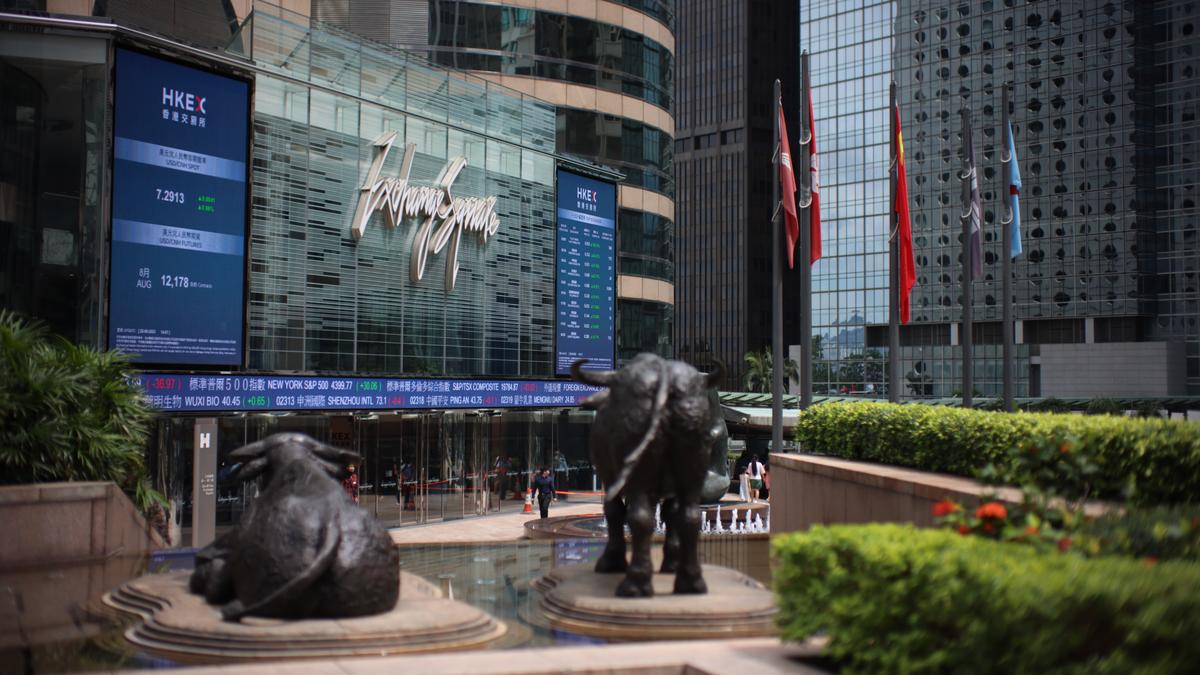 This photo taken on Aug 22, 2023 shows the Hong Kong Stock Exchange in Central, Hong Kong. (EDMOND TANG / CHINA DAILY)
This photo taken on Aug 22, 2023 shows the Hong Kong Stock Exchange in Central, Hong Kong. (EDMOND TANG / CHINA DAILY)
The financial markets of Hong Kong and the Chinese mainland have cemented strong connectivity in a variety of areas over the last decade, and now the financial sector in Hong Kong has suggested that linkage should be considered in the initial public offering market (IPO Connect), and the commodity trading segment (Commodity Connect).
Over the past decade, connectivity has been forged in various product ranges between Hong Kong and the Chinese mainland financial markets — in stocks, derivative swaps, bonds, mutual investment funds and exchange-traded funds — bolstering Hong Kong’s role as a superconnector between the mainland and overseas financial markets.
Tan Yueheng, a Legislative Council member representing the Election Committee constituency, said in a written reply to an enquiry from China Daily that financial regulators across the border should consider connectivity in the primary fund-raising market.
“IPO Connect, if implemented, could help introduce incremental funds investing in the Hong Kong new stock market, promote more successful IPO listings, and attract more high-quality companies for listing in Hong Kong. The increased liquidity brought by incremental funds will help the stock price performance of high-quality companies, thereby increasing the company's subsequent equity financing opportunities.
HKEX has signed memorandums of understanding with international exchanges such as Saudi Tadawul Group, Indonesia Stock Exchange and Beijing Stock Exchange to pave the way for dual-listing opportunities
“When investors sell their shares, it will also increase the liquidity for secondary trading of the Hong Kong equity market, forming a virtuous circle and consolidating the influence and financing capabilities of the Hong Kong Stock Exchange in global exchanges,” said Tan, who is also chairman of BOCOM International Holdings Co.
ALSO READ: HK to boost multilateral ties in 17th Asian Financial Forum
The lawmaker added that as Hong Kong is reviewing and improving its listing process, trying to activate the Growth Enterprise Market, and optimizing the short-selling mechanism, these measures will also be beneficial to the city’s IPO market.
Tan stressed the importance of launching IPO Connect in consolidating Hong Kong’s status as an international finance center.
“The proposed IPO Connect can increase investment options for domestic qualified investors through diversifying asset allocation investment risks. IPO Connect will increase the subscription ratio of new shares, which will help enhance the trading activity of the Hong Kong new stock market, thereby contributing to attracting foreign investors to come back and improve the overall valuation level of Hong Kong stock market,” Tan said.
PricewaterhouseCoopers recommended the implementation of the Primary Equity Connect initiative to enhance connectivity and encourage companies to list in Hong Kong by raising funds in renminbi.
“The proposal would allow mainland investors to participate in Hong Kong IPOs using renminbi while Hong Kong investors also can subscribe to mainland IPOs using the Hong Kong dollar or renminbi. Expanding the stock connect connectivity program from secondary markets to IPOs can enhance liquidity of both markets,” explained Eddie Wong, PwC Hong Kong capital markets services partner.
The global business advisory firm also suggested that Hong Kong should collaborate with global stock exchanges to explore cross-border dual listing mechanisms, especially with exchanges in the Middle East and Southeast Asia, thus expanding the base of investors and issuers in different geographies.
ALSO READ: HK, Shenzhen eye deeper cooperation for development
HKEX has signed memorandums of understanding with international exchanges such as Saudi Tadawul Group, Indonesia Stock Exchange and Beijing Stock Exchange to pave the way for dual-listing opportunities, aimed at attracting Middle East and Southeast Asia-based enterprises to list in Hong Kong.
In addition to traditional financial assets such as equities, bonds and mutual funds, the Federation of Hong Kong Industries — the business chamber representing the city’s industry sector —recommended that the city’s financial regulators consider a “Commodity Connect”.
By setting Chinese mainland and international benchmarks for commodities, mainland financial institutions can transact commodities traded in overseas markets through the Hong Kong trading platform, and vice versa. By providing a pricing reference in non-US currencies, the industrial sector can effectively manage price risks in different markets, FHKI said.


